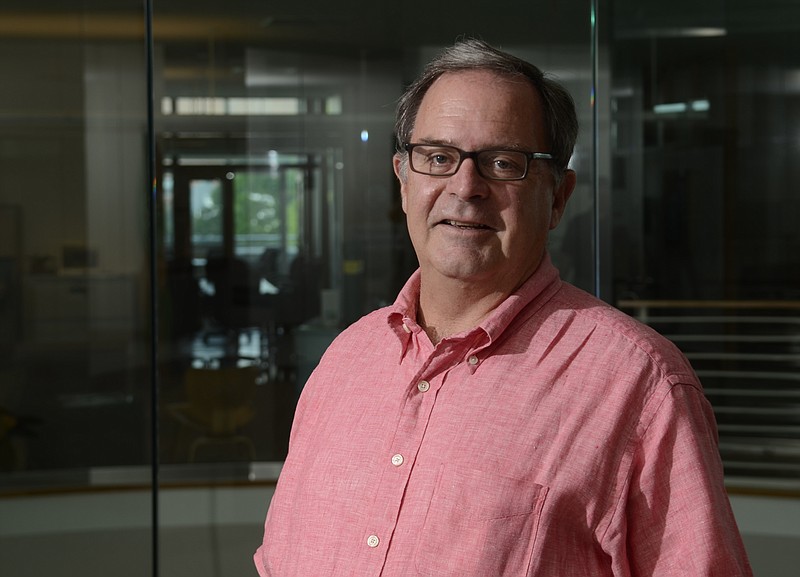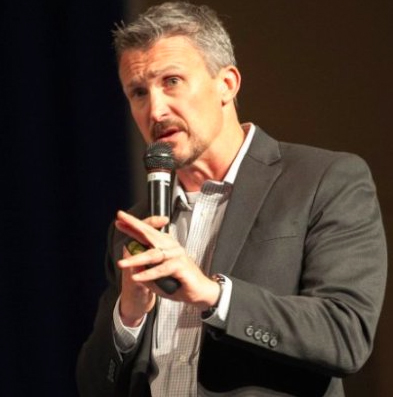Chattanooga is becoming a new center of innovation.
Chattanooga's highly touted gig-speed Internet service was built with heavy government subsidies that are distorting the marketplace, crowding out private investment and threatening higher power rates or tax bills for others, according to a new economic study of municipal broadband systems.
A conservative think tank opposed to city utilities getting into competitive telecommunications - the State Government Leadership Foundation - sought Wednesday to minimize the benefits of Chattanooga's ultra-high-speed Internet service while raising doubts about its potential costs to city taxpayers and electricity users.
Dr. George Ford, chief economist for the Phoenix Center for Advanced Legal and Public Policy Studies, said EPB got the equivalent of $2,000 per customer in federal subsidies to build its citywide fiber optic network, which claims to be the fastest communitywide Internet service anywhere in the world.
Ford said other government-owned utilities, such as one in Bristol, Va., have gotten $7,000 or more per subscriber to add telecommunications services that compete against private companies such as AT&T, Comcast and Charter Communications.
"The incumbent private sector providers are not offering broadband service in some areas because there is no money in serving those folks," Ford said. "The bet is so bad that no economic actor would do it, so you find some uneconomic political actor to do it, which immediately spells trouble."
But backers of EPB's fiber optics network insist the utility's investment of more than $330 million has already paid off in a smarter electric grid, better telecom services and more economic development in Chattanooga.
An economic study last year by Bento Lobo, professor of finance at the University of Tennessee at Chattanooga, said EPB's fiber optics network in its first three years saved $130.5 million in power outages, boosted business energy efficiency by $234.5 million and spurred $461 million in new business investment.
EPB was awarded a $111 million federal stimulus grant in 2010 to build its smart grid. EPB spokesman John Pless said the money expedited the build-out of the fiber optic network for the smart grid, and the communications services were an extra benefit.
"The business model works without this grant," Pless said in a statement. "All electric system customers benefit from the Smart Grid, but the cost of the fiber optic network is covered by customers who choose to subscribe."
***
With more than 82,000 fiber optic customers, EPB telecommunications is expected to generate more than $130 million this year and pay more than $30 million into the electric system. Pless said that helps lower power rates, instead of requiring subsidies for other services, as Ford argues.
The benefits go far beyond EPB's power, Internet, telephone or cable TV services, however.
With 10-gigabit-per-second service available anywhere in Chattanooga, Enterprise Center President Ken Hays said the self-proclaimed "Gig City" is becoming a living laboratory for testing out new computer apps, interactive telemedicine, long-distance video production and a host of new tech startups.
"Chattanooga is becoming a new center of innovation," said Hays, who is helping with a $540,000 pilot program on ways to use high-speed Internet.
"The 4K microscope project we did using the gig to connect with the University of Southern Cal is taking education to a new level," he wrote in a statement. "U.S. Ignite and the National Science Foundation are funding initiatives to show what the next generation world is going to look like and we know that because of our 10-gig service in Chattanooga we are going to be a leader in helping to develop and test these new technologies."
But Ford said for all the attention paid to 10-gig Internet service, only a few can use it now.
"Ten gig shows the insanity of what we're up against. I can't think of any businesses, let alone any individual, that could use that kind of capacity," Ford said.
Hays said cable TV and phone companies said the same thing five years ago when EPB launched 1-gig service citywide. Now EPB has 7,400 gigabit subscribers, and last week, the Enterprise Center hosted delegations visiting from Burlington, Vt., Jackson, Tenn. and Huntsville, Ala. The groups came with leaders from U.S. Ignite to begin discussions on possible city collaborations among the cities with Gig Internet service offered by municipal utilities.
"Now even the phone and cable TV companies are all announcing plans to add gig service of their own because they realize how important it has become," Hays said.
More than 130 municipal utilities nationwide offer broadband services, but Chattanooga has emerged as a leader in the speed and penetration of its service.
"Businesses and investors from all over the country are going to Chattanooga because of its 10-gig service," said Christopher Mitchell, director of community broadband networks for the nonprofit Institute for Local Self-Reliance, which studies and advocates for municipal broadband.
***
Pless challenged Ford's analysis, calling it "a politically motivated hit piece."
The State Government Leadership Foundation, the 13-year-old nonprofit advocacy group that funded Ford's study, is supported by a number of major corporations, including Time Warner which operates cable TV companies across the country, according to a review of IRS filings by ProPublica.
Earlier studies by Ford did not find evidence that municipal broadband crowded out private telecom competitors. But the economist said Wednesday that municipalities eager to expand high-speed broadband can engage in predatory pricing by using their nonprofit, government status to sell at lower prices or serve more outlying customers than private cable TV or telephone companies can afford.
But Ford, a former FCC and industry consultant who has studied municipal broadband systems for years, said private providers will best expand broadband in remote areas. They will be assisted by the FCC's Connect America Fund, which taxes telephone service to pay for broadband services.
Ford said subsidizing government utilities distorts the marketplace and invites predatory, below-market pricing designed to drive existing cable TV, telephone and other carriers out of business.
He said municipal electric utilities can subsidize competitive telecom businesses with revenues from monopoly services like electricity, or use local tax dollars to prop up projects that don't make economic sense. Such cross subsidies are not allowed by the Tennessee Valley Authority or under Tennessee law, however.
State legislatures and federal regulators are considering what, if any, restrictions should be placed on telecom competition and services by private and government entities.
Tennessee law restricts municipal electricity providers like EPB from expanding telecommunications services beyond their power service territories. But the FCC voted 3-2 last year that the restriction violates a congressional mandate to expand broadband services across the country.
The Tennessee attorney general has appealed the FCC ruling, and the state Legislature declined this year to lift the limits before a study of rural broadband needs is complete later this year.
Contact Dave Flessner at dflessner@timesfreepress.com or at 423-757-6340.


